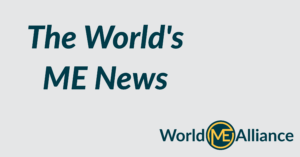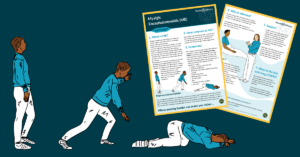On the 2nd December 2022, the World Health Organization (WHO) published an important global report on health equity for persons with disabilities. The report is based upon the principle that persons with disabilities have the right to the highest attainable standard of health as those without disabilities.
It demonstrates that while some progress has been made in recent years, the world is still far from realizing this right for many persons with disabilities who continue to die earlier, have poorer health, and experience more limitations in everyday functioning than others.
The World ME Alliance and our members were pleased to see recognition of the poor health outcomes persons with disabilities face alongside actions to address this.
However, on reading the report we felt there were significant gaps around the distinct stigma and access barriers facing those with energy limiting disabilities, in particular myalgic encephalomyelitis/chronic fatigue syndrome (ME/CFS) and long COVID.
Our 21 members therefore joined together in writing a response to the report, and calling on the WHO to more fully integrate those with energy-limiting disabilities such as ME/CFS and long COVID into the upcoming “Guide for Action” being developed to support countries to implement the recommendations on improving health equity.
We included three recommendations:
- We recommend the creation of a committee or working group for the WHO for those disabled by energy-limiting illnesses – thus creating a mechanism for securing input from that community in the future.
- We suggest a section in the “Guide for Action” describing energy-limiting disabilities, and including a definition of post-exertional malaise. We believe it would be beneficial to include a story from someone with an energy-limiting disability in this toolkit.
- We noticed that the report mentioned on page 26 that the “evidence on how COVID-19 impacts disability prevalence in populations is still evolving,” and would instead contend that there has been a large amount of research clearly demonstrating the disabling impacts of COVID-19. We recommend an update to this section, or a section defining post-viral illness, in the upcoming “Guide for Action.” This would create an acknowledgement of research advances which have been made both in defining the scope of the disabling and long-term effects that people experience post-COVID, and in assessing the breadth of the impact societally.
We are hopeful that the WHO will work with us and other organizations to achieve better awareness of energy-limiting disabilities in their work going forwards, and look forward to their response.



